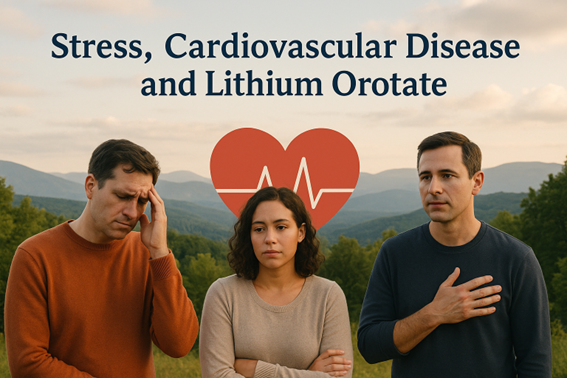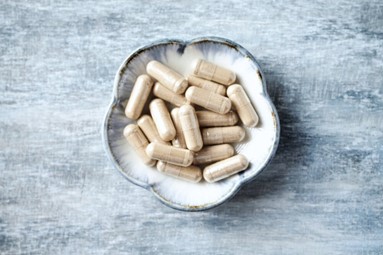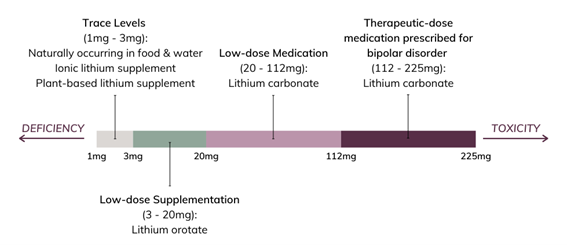
No kidding, who would ever guess that heart patients would suffer from stress and some kinds of difficulties in their personalities, like many cancer patients do? Stress is one of the most underestimated yet powerful drivers of cardiovascular disease. Stress is not separate from cardiovascular disease — it is one of its deepest roots. One of the reasons people die or suffer from heart attacks and strokes is the difficulty people have in being aware of and dealing with their own internal stress levels. This is why strokes and heart attacks happen so suddenly and unexpectedly.
The vast majority of people constantly live in a state of permanent stress without thinking, without even feeling it directly, so they have no idea what dangers their stress threatens. We are mostly unconscious of our stress, but certainly, those aches and pains we feel disturb our consciousness. Often our pains haunt us even into our sleep, no matter how many supplements or doctor’s pills we take. The last thing we usually do is directly relate our physical pains to the stress we are under.
Harvard physiologist Walter Cannon recognized 90 years ago that when confronted by a threat – physical or emotional, real or imagined – the body responds with a rise in blood pressure, heart rate, muscle tension, and breathing rate. We now know that this physiological “stress response” involves hormones and inflammatory chemicals that can foster everything from headaches to heart attacks.
There are quite a few researchers and doctors who feel that cancer starts with stress and emotional shocks. For cells, it does not matter where the stress comes from. Intense traumatic events can easily weaken the immune system, making it more susceptible to infections and even cancer. In many cases of serious illness, a core issue is hiding, or there is an unresolved conflict that’s been repeating over and over in a person’s life. For cancer, the connection has been clear, but that is not so true for cardiovascular disorders.
Actually, the reality is that stress, whether acute or chronic, has long been recognized as a major modifiable risk factor for cardiovascular disease (CVD), which encompasses conditions like coronary heart disease, hypertension, stroke, and heart failure. Recent research emphasizes that psychological stress not only exacerbates traditional risk factors like high blood pressure and cholesterol but also directly impacts the cardiovascular system at molecular and physiological levels. A 2025 study highlights how even a few nights of insufficient sleep, a common stress outcome, promotes molecular mechanisms linked to increased heart risk, underscoring the pervasive influence of stress.
Mechanisms Linking Stress to CVD
The connection between stress and CVD operates through multiple interconnected pathways. Chronic stress activates the hypothalamic-pituitary-adrenal (HPA) axis, resulting in elevated cortisol levels that promote inflammation, endothelial dysfunction, and plaque formation in arteries. At a molecular level, stress induces oxidative stress and alters gene expression, as demonstrated in a 2025 study at UC Davis, where chronic psychosocial stress was linked to changes in heart tissue, including increased inflammatory markers and impaired vascular function.
Stress is not just “in the mind.” Chronic stress reprograms the physiology in ways that directly harm the cardiovascular system. The body’s survival systems — the sympathetic nervous system and HPA axis were designed for short bursts of danger, not for the unending pressures of modern life.
The sympathetic nervous system plays a role, with prolonged activation causing vasoconstriction, increased heart rate, and hypertension. Stress disrupts the balance of the autonomic nervous system, favoring sympathetic over parasympathetic activity, which can lead to arrhythmias and myocardial ischemia. Social determinants, such as financial hardship, further exacerbate this through sustained HPA activation, which mediates CVD risk via changes in body composition and lifestyle. Early life stress sets the stage for long-term vulnerability, altering cardiovascular function through epigenetic modifications, as investigated in ongoing research at the University of Alabama at Birmingham.
Types of Stress and Their Impact
Stress can be categorized into acute (short-term) and chronic (long-term), each with distinct cardiovascular effects. Acute stress, such as from a sudden event, triggers the “fight-or-flight” response, which can precipitate immediate CVD events like heart attacks in susceptible individuals, particularly those with preexisting plaque. Chronic stress, however, is more insidious, accumulating over time and contributing to progressive damage.
For instance, financial stress has been shown in a July 2025 study to elevate CVD risk by 20-30%, mediated by obesity, smoking, and poor diet. Psychosocial stress, including work-related or social isolation, increases coronary artery calcification and overall CVD incidence, as per a 2024 update in Nature Reviews Cardiology. In young adults (30-59 years), a 2025 Northwestern study found one in seven has a high 30-year CVD risk, often linked to unmanaged stress.
Prevention and Management Strategies

Preventing stress-related CVD involves multifaceted approaches. Lifestyle interventions like regular physical activity can reduce stress by 20-30% and lower CVD risk, as per WHO guidelines. Mindfulness and cognitive behavioral therapy can mitigate HPA overactivation, with a 2024 review showing a 15% reduction in blood pressure among stressed patients. Breathing retraining should be high on the list for stress deactivation. And, of course, high dosages of magnesium are crucial because magnesium deficiencies are becoming increasingly prevalent.
Lithium Orotate

Lithium is a naturally occurring mineral (an alkali metal, like sodium, potassium, and magnesium). Minerals almost always make the best medicines, and because Lithium Orotate affects the cardiovascular system as well as mental and emotional stress, I am including it in my Natural Cardiology protocol.
Conventional medicine uses lithium carbonate or lithium citrate in high doses to treat bipolar disorder. However, Lithium orotate is far more than a psychiatric mineral:
Cardiovascular: anti-inflammatory, anti-calcification, possible anti-arrhythmic.
Neurological: neuroprotective, mood stabilizing, dementia prevention.
General: bone strengthening, anti-aging, longevity support.
It sits alongside magnesium, bicarbonate, and hydrogen as one of the “forgotten medicines” that is simple, natural, and profoundly protective when used wisely. Lithium orotate, a supplement form of lithium bound to orotic acid, is used in low doses (typically 5-20 mg daily, providing 1-5 mg of elemental lithium) and is distinct from the higher-dose prescription forms like lithium carbonate (used at 1000 mg/day for bipolar disorder). Its potential cardiovascular benefits and general uses are supported by emerging research and anecdotal evidence, though it lacks the extensive clinical trials of pharmaceutical lithium.
Cardiovascular Uses
Blood Pressure Regulation: Low-dose lithium orotate may help regulate blood pressure by influencing sodium balance and vascular function, potentially through mechanisms like inhibiting GSK-3 (glycogen synthase kinase-3), which affects endothelial health. Studies suggest that it may work synergistically with calcium channel blockers, and user reports indicate improved control in hypertensive cases.
Anti-Inflammatory Effects: It may reduce cardiovascular risk by lowering inflammation, a key factor in the development of atherosclerosis. Modulating inflammatory pathways and reducing macrophage infiltration in arteries could help prevent arterial stiffening and occlusion. Chronic vascular inflammation is a central component of atherosclerosis. Lithium has been shown to reduce inflammatory cytokines (TNF-α, IL-6) and downregulate NF-κB, a key regulator of vascular inflammation. This could help protect the endothelium (the inner lining of blood vessels) from damage that initiates the formation of plaque.
Myocardial and Vascular Support: Research indicates that low-dose lithium activates the PI3K/Akt signaling pathway, enhancing cardiac contractile function and promoting cell survival through autophagy. It may also enhance endothelium-dependent vasorelaxation, thereby offering cellular resilience against cardiovascular aging; however, further human studies are needed.
Lithium influences ion channels (such as calcium, sodium, and potassium), thereby stabilizing cell membranes. Some evidence suggests microdose lithium may stabilize heart rhythm, reducing arrhythmic risk, though high-dose lithium carbonate has complex effects and must be monitored. Lithium inhibits GSK-3β (glycogen synthase kinase-3 beta), an enzyme involved in calcification pathways. This raises the possibility that lithium could reduce vascular stiffening and plaque calcification.
General Uses
A little bit of lithium goes a long way.
Mood Stabilization and Mental Health: Widely used as a nootropic, lithium orotate supports mood balance, reduces anxiety, and promotes emotional wellness by modulating neurotransmitters like serotonin, dopamine, and glutamate. It’s particularly noted for helping those with irritability, mood swings, or a genetic predisposition to mood disorders, often as an adjunct to other therapies.
Neuroprotection: It increases brain-derived neurotrophic factor (BDNF) and nerve growth factor (NGF), supporting neurogenesis and memory. Low doses are studied for potential benefits in preventing Alzheimer’s, dementia, and Parkinson’s by reducing beta-amyloid plaques and neuroinflammation.
Lithium orotate is a nutritional form considered gentle with few side effects and is available as a supplement.
In addition to bipolar disorder, preliminary evidence shows that those struggling with the following challenges may benefit from lithium supplementation:
- Suicidal ideation and impulsivity
- Autism spectrum disorders
- Cognitive decline and brain fog
- Anxiety, including panic attacks
- Depression
Anna Fels, professor of psychiatry at Cornell and published in the New York Times, said, “There’s enough evidence that people should have the option of taking microdoses [of lithium], especially since there seems to be no downside to it. There’s very suggestive evidence that it’s useful in terms of reducing impulsivity, irritability, suicidality.”
What type of lithium supplements are available?

Ionic lithium is a liquid form that contains lithium chloride. This form can be especially helpful for children or patients who are sensitive to treatment, as it allows for a gradual increase in dose from a low starting point to a therapeutic level. Typically, ionic lithium is prescribed at 0.5 – 1mg.
Plant-based lithium is a unique form of lithium made from vegetables that are grown in high-dose lithium soil. Currently, there is only one manufacturer that produces plant-based lithium. This form may be better absorbed and utilized, as our bodies are used to digesting lithium in plants. In my practice, some of the best reports and feedback come from patients with depression who use plant-based lithium.
Lithium orotate is a salt with orotate, a naturally occurring substance in the body. Patients taking lithium orotate experience far fewer side effects compared to lithium medication. This may simply be because lithium orotate is prescribed at much lower doses than the medication. Others have argued that it can enter cells where it is needed, resulting in less toxicity to other organs.
Lithium orotate typically comes in 5mg capsules, a dose that is higher than ionic or plant-based lithium but significantly lower than the medications that can contain up to 225mg or more of lithium. In other words, lithium orotate offers an option for those who need more lithium than the trace levels in ionic and plant-based lithium, but want to avoid the serious side effects of high-dose medication for conditions like depression, anxiety, and brain fog.
There have been no reported cases of death or serious side effects with lithium orotate.
Dr.Sircus is a reader-supported publication. To receive new posts and support my work, consider becoming a free or paid subscriber.
Subscribe now



comments